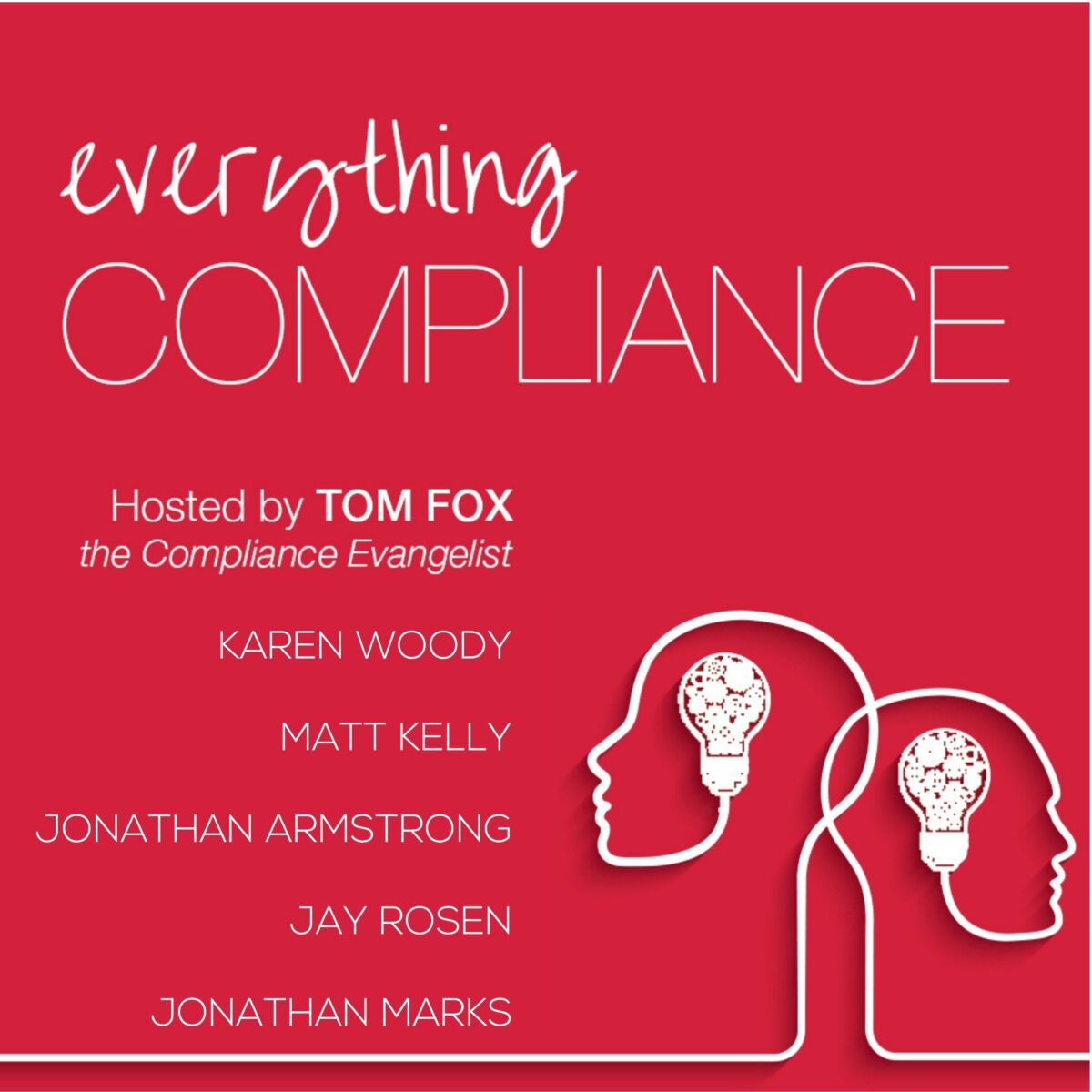There are two problems that every company must deal with at the intersection of executive compensation and compliance. The first is the presence of perverse incentives within organizations, where executives are often encouraged to take excessive risks because they personally profit from them. This misalignment of incentives can lead to unethical behavior and non-compliance, ultimately harming the organization and its stakeholders. The second is both the Securities and Exchange Commission (SEC) and Department of Justice (DOJ) mandates for executive clawbacks.
Incentives
To address this issue, companies need to tie positive incentives directly to senior executives. By holding them accountable for compliance failures, we can align their compensation with compliance objectives. This approach ensures that executives have a personal stake in maintaining ethical practices within the organization. What makes this approach unique is that it is a business response to a legal problem, rather than a government mandate. A business response is always a better way to go, as it allows organizations to take ownership of their compliance programs and tailor them to their specific needs.
Various proposals are discussed in the podcast to ensure senior executives are held personally accountable for compliance failures. One solution, suggested by William Dudley, former president of the Federal Reserve Bank of New York, is for senior management and material risk takers to forfeit their performance bond in the case of large fines. This not only disciplines individual behavior and decision-making but also incentivizes individuals to flag issues when problems arise.
Another approach, outlined in an article titled “Ties That Bind Codes of Conduct,” recommends automatic reduction of pay for officers, directors, and advisors for failures of corporate governance. Executives would agree to pay back a portion of their gross compensation for a set period before the beginning of any improprieties, regardless of their knowledge of misdeeds within the company.
While corporate leaders may not be enthusiastic about being held accountable, these proposals offer a business solution to a legal problem. Holding senior executives responsible for the conduct of others aligns with their obligations under Sarbanes-Oxley and ensures that they are not shielded from the consequences of non-compliance. Shareholders are also becoming less accepting of the argument that leaders should not be responsible for the actions of their employees.
Data from an article by Gretchen Morgenson titled “Ways to Put Your Boss’s Skin in the Game” further supports the need for accountability in executive compensation. The article explores how to make senior executives more responsible for corporate malfeasance, with implications that apply to compliance programs and compensation tied to compliance. Creating accountability in executive compensation is a critical step towards promoting ethical business practices and compliance within organizations. By tying positive incentives to senior executives, we can ensure that they have a personal stake in maintaining compliance objectives. The proposals discussed in the podcast, such as forfeiting performance bonds and enforcing pay reductions for failures of corporate governance, offer practical solutions to address perverse incentives and drive ethical behavior.
Clawbacks
Clawbacks, often seen as a form of guarantee for businesses, play a vital role in addressing employee misconduct. These provisions, typically included in written contracts, serve as a deterrent and allow organizations to reclaim incentive or bonus funds from employees engaged in wrongful activities. It is important to note that clawbacks apply to compensation received as incentives or bonuses, rather than salary.
The SEC has provided guidance on constructing effective clawback provisions. In their final rule titled “Listing Standards for Recovery of Erroneously Awarded Compensation,” (the Rule) the SEC directs National Securities Exchanges and Associations to establish listing standards for issuers to develop and implement policies for recovering incentive-based compensation in the event of required accounting restatements.
The DOJ has also weighed in on subject of clawbacks, most recently in the 2023 Evaluation of Corporate Compliance Programs (ECCP), it stated “Are the terms of bonus and deferred compensation subject to cancellation or recoupment, to the extent available under applicable law, in the event that non-compliant or unethical behavior is exposed before or after the award was issued? Does the company have a policy for recouping compensation that has been paid, where there has been misconduct? Have there been specific examples of actions taken (e.g., promotions or awards denied, compensation recouped or deferred compensation cancelled) as a result of compliance and ethics considerations?”
In summary, both the SEC and DOJ have now laid out the foundations for both incentives and consequence management.
SEC: The SEC Rule encompasses a wide range of scenarios. Companies are required to claw back incentive compensation erroneously received by current or former executives during the three-year period preceding the required restatement date. The definition of “received” is broad, considering incentive compensation earned even if not yet paid. The recoverable amount may differ from what executives would have received based on the required restatement. The SEC rule prohibits companies from obtaining indemnity insurance to protect executives from clawbacks. This step ensures that executives are held personally accountable for their actions and fosters a culture of compliance within organizations.
DOJ: In the ECCP has emphasized the significance of clawbacks in compliance programs. The ECCP directs companies to develop and apply compensation and clawback policies, shifting the burden of financial penalties away from innocent shareholders. The clear intent to prevent companies from shielding employees involved in illegal and unethical conduct. The DOJ will consider whether a company has incentivized compliance by designing compensation systems that defer or escrow certain compensation tied to conduct consistent with company values and policies. Enforcement of a contract provisions that permit the company to recoup previously awarded compensation if the recipient of such compensation is found to have engaged in or to be otherwise responsible for corporate wrongdoing is now a critical metric that prosecutors will consider. Finally, prosecutors may consider whether provisions for recoupment or reduction of compensation due to compliance violations or misconduct are maintained and enforced in accordance with company policy and applicable laws.
Practical Steps
To create a robust compliance program that promotes ethical behavior and compliance, companies should consider the following practical advice:
- Documented Policies and Procedures: It is crucial for companies to document and reflect clawback policies and procedures in their compensation agreements. This documentation showcases a commitment to compliance and serves as a deterrent for potential misconduct.
- Clear Disciplinary Procedures: Companies should have appropriate and clear disciplinary procedures in place when enforcing a compliance program. Publicizing disciplinary actions internally and under local law can have a deterrent effect on employees, emphasizing the consequences of engaging in unlawful or unethical behavior.
- Personal Accountability: The DOJ and SEC prioritize holding individuals accountable for misconduct. Prosecutors evaluate whether a corporation’s compensation agreements incorporate clawback provisions that enable penalties to be levied against employees, executives, or directors involved in criminal conduct.
Conclusion
Clawback provisions have become a crucial element in compliance programs, promoting ethical behavior and ensuring accountability within organizations. The SEC Rule, along with the DOJ’s emphasis on clawbacks from the Monaco Memo to the ECCP, highlights the significance of these provisions in the business world. By implementing well-documented clawback policies, companies can create a culture of compliance that rewards ethical behavior and protects innocent shareholders. Both initiatives prioritize ethical practices and compliance to build a better business environment for all stakeholders.









